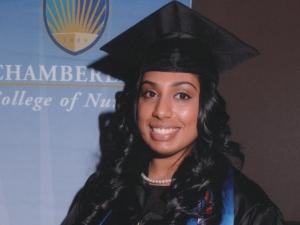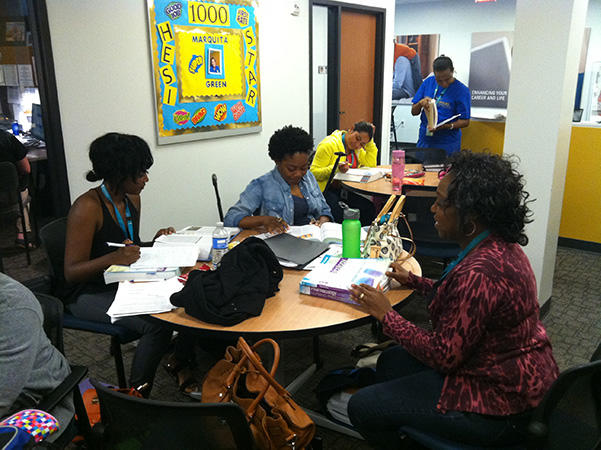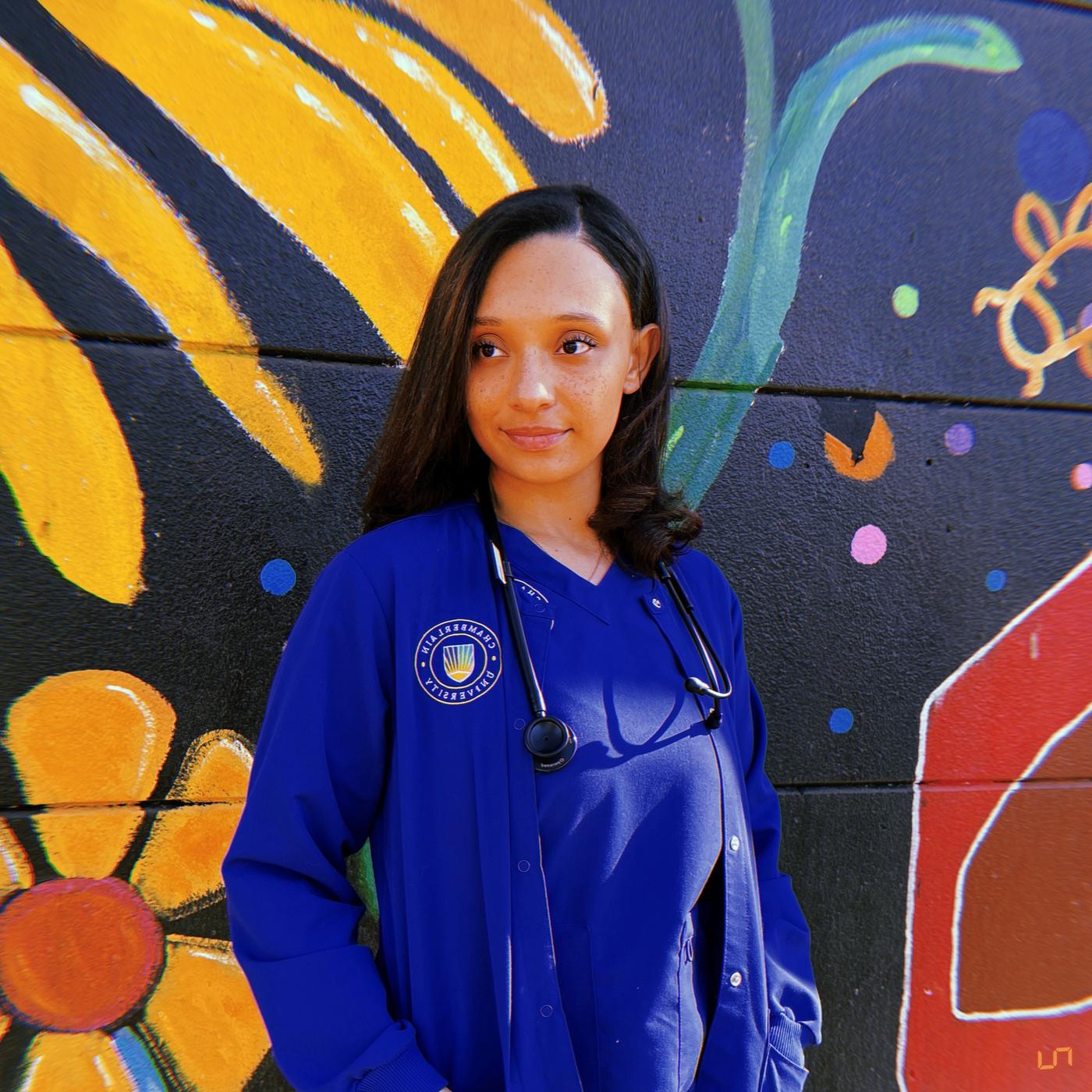Featured
Tags
Share
- Home / Blog / Campus News / How to Pass the NCLEX in 75 Questions
How to Pass the NCLEX in 75 Questions

Maryam Syed graduated from Chamberlain College of Nursing’s Chicago campus on Oct. 30, 2012, and by mid-December found out she had passed the National Council Licensure Examination (NCLEX).
During the NCLEX, candidates receive between 75 and 265 exam questions. The computer adaptive test ends when it can be determined that a candidate's performance is either above or below the passing standard.
Syed proved her competence with the minimum number of questions, passing the NCLEX in 75 questions. According to the National Council of State Boards of Nursing, the average candidate received 121 questions in 2009. She shares her tips for how to pass the NCLEX below:
How did you approach studying for the exam?
I feel if you haven’t learned the material in school, you’re probably not going to learn it now. I don’t learn by reviewing content, I learn by practicing questions, so that’s how I went about it. Once I had my authorization to test, I set a pace for myself – I have to do 200 questions a day for this week, 150 questions a day for this week.
I also did additional research as I went through. If I got a question wrong, I didn’t just read the rationale and say OK, now I’m good. I would Google it and find out more about it. It really made learning more effective. I also looked up lab values before the exam, since those won’t change and you just need a refresher.
When did you start studying for the NCLEX Exam?
I’m a tutor in the Center for Academic Success (CAS) so that really, really helped. I was a tutor for a year and a half before graduation and I’m still a tutor now. I started studying about two weeks after graduation and studied for six weeks. I studied from three to six hours each day. I also took a test prep course, which was a week.
Why was your time as a CAS tutor so helpful?
We constantly got to review that material over and over and over. I got more exposure to all the subjects. I would recommend students use the CAS regularly and spend time studying and understanding, instead of just trying to pass the exam for that one day. It helps if you constantly refresh. If you have a break or vacation, take that time to prepare for the next class.
When should students take the NCLEX?
I don’t recommend waiting very long after graduation to take the NCLEX – take it while the information is still fresh. You have to wait for your paperwork and fingerprints to go through after you graduate. I got my authorization 2-3 weeks after I graduated and I registered to take the NCLEX about three weeks later. Most people waited at least two weeks to take it.
Any tips for the day of the exam?
I took the exam at 8 am, but they also offered a later testing time at 2 pm. Take it at the time you function best. I took it in downtown Chicago and I wasn’t very familiar with the area so I had someone drop me off and pick me up. I would recommend taking a test drive if you’re going on your own so you know where the place is and where to park.
Overall, don’t change your routine. Do what you normally do. I ate the same thing I normally eat. I went to bed at the same time I normally would if I had an 8 am class. I made sure to eat so my stomach wouldn’t growl. I made sure to bring water and snacks with me in the event it did go on for 6 hours. You have to be ready—prepare for the worst. It might go on for 6 hours — it doesn’t mean you failed — but be prepared and make sure you have the time and be positive.
How to Score Over 1,000 on the HESI Exit Exam
So how does it feel to officially be a nurse?
It feels really, really good. Now, I’m looking for a job. I still work as a tutor, but I’m hoping to work in a hospital.
What advice would you have for a new student at Chamberlain?
Use the CAS earlier—a lot of people go to seek extra help, and if it’s needed I think you should. But it’s also great to start early.
Be prepared for when you go to clinical and take advantage of every opportunity you have. If you have the opportunity to insert your first catheter in Med-Surg, and you’re still new and you just learned it and you’re nervous, just do it. Someone will be there to watch and guide you, and instructors are always there to answer questions. Take full advantage of everything. Towards the end of the program and as a nurse, you’re going to have to do it on your own. If you need help, seek it with instructors or friends if you don’t want to go to CAS.
Be active and volunteer. It gets you involved and gets you known. It opens up more opportunities—connections are really important. Don’t be just a body that goes to school.
4 Tips to Ace Your First Nursing Interview
Time management is so crucial in nursing school. Any tips?
If you’re going to work, have a job that’s very flexible. It’s not recommended that you work, but sometimes the reality is that you do have to. I worked two jobs while I was in Med-Surg. Both of my jobs are very flexible. I work a whole bunch of hours when I’m on break or vacation, and then when it comes down to tough classes like Med-Surg or Critical Care, I would take a week or two off. That’s really important.
If you do work, you have to manage your time very well and you need a job that’s very flexible. You don’t know what clinical you’re going to have, what time, what day. You’re not going to know right away. I’ve had clinicals in the daytime, I’ve had them overnight, I’ve had them on weekends.
By Molly Mattison
More from Campus News
Request More Information
To receive the Chamberlain University Program Guide, including associated career paths, please select a program of study.






